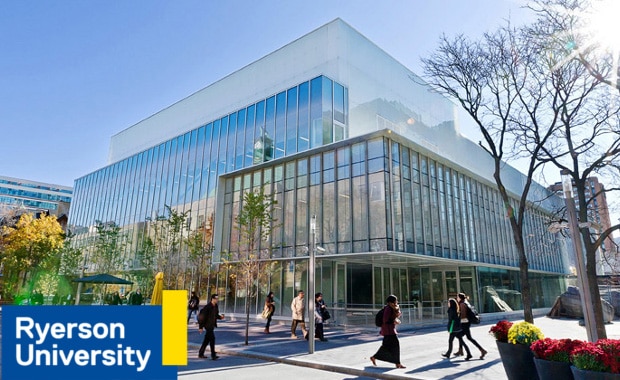There is a growing need for clinical physiologists today because the field is diverse, and they can work with other professions. But before then, you need to ask yourself what does a clinical physiologists do?
A clinical physiologist who collaborates with doctors, nurses, and other medical specialists is required due to the rising incidence of illness.
As a young physiologist, even a college student, the route to getting it right in this profession is first what a clinical physiologist does.
Now you may be wondering what a clinical physiologist does.
This article will assist you in making the best decision as you begin your clinical physiologist profession also give you additional details regarding the value of a physiology specialist in the modern world.
Table Of Contents
- Who is A Clinical Physiologist?
- What is A Physiologist?
- What is A Clinical Physiologist?
- What Does A Clinical Physiologist Do?
- Clinical Physiology in the Hospital Setting
- Clinical Physiology in the Private Setting
- Clinical Physiology in the Government Setting
- Exercise Clinical Physiologist Setting
- Job Duties Of a Clinical Physiologist
- Regular Tasks a Clinical Physiologist is Likely to Complete:
- What Specialties Can You Choose As a Clinical Physiologist?
- #1. Neurophysiology
- #2. Cardiac Physiology
- #3. Exercise Physiology
- #4. Gastroenterology Physiology
- #5. Respiratory Physiologist
- #6. Sleep Physiologist
- How To Become A Clinical Physiologist
- #1. Earn a Bachelor’s Degree
- #2. Complete a Master’s Degree
- #3. Get Work Experience
- #4. Invest in Professional Development
- Knowledge And Skills Required To Be A Clinical Physiologist
- Clinical Physiologist Salary
- FAQs
- Conclusion
- References
- Editor’s Recommended Posts
Who is A Clinical Physiologist?
Clinical physiologists perform critical procedures and investigations on patients to aid in diagnosis, monitoring, and treatment of a wide variety of disease processes.
They do this using specialized equipment and cutting-edge technologies. Their advice is diagnosing patients of all ages, from newborns to the elderly, and in some cases providing therapeutic intervention, long-term management, and care.
What is A Physiologist?
Physiologists are biologists who research the mechanics and operations of living things and their constituent parts.
They could look at how specific proteins behave in single cells, how cells interact with one another in tissues, organs, and systems, or how the entire body functions as a unit under the impact of the environment.
What is A Clinical Physiologist?
Human physiology relates to clinical practice is the subject of clinical physiology. Human physiology is the study of physical, mechanical, and biochemical characteristics of humans.
Because the field is so vast, there are typically several ways for doctors and other professionals to become sufficiently knowledgeable to be qualify as physiologists.
The work is virtually always closely tied to practice on the clinical side, though. To comprehend and fix various bodily functions, clinicians frequently examine the clinical elements of physiology.
This is done by planning tests and trying to identify any issues. Others do studies to develop pharmaceutical therapies and medications that are more potent for treating particular ailments based on how the body responds.
These experts analyze patients’ bodies, identify physiological abnormalities, and develop treatment plans using highly specialized diagnostic equipment.
They work with medical professionals to evaluate, track, and manage various illnesses and ailments. Clinical physiologists might work in healthcare or academics, depending on their education.
The clinical branch of this field is primarily focused on providing direct patient care, whether through evaluation, rehabilitation, or therapy, and the development of treatment regimens.
What Does A Clinical Physiologist Do?
Physiologists aim to understand every aspect of the way human, animal, and plant bodies work, both in health and in response to disease.
Their work provides the foundation for many biological and clinical sciences, including medicine and veterinary science, and facilitates the development of new treatments and guidelines for maintaining human and animal health.
Physiologists study how body structures work. Those who study the human body focus on one or more of the physiological organ systems which perform different functions in the body, as well as on how these systems work together to keep us alive.
When we become sick or injured, our normal physiology is disrupted. Understanding this altered state or ‘pathophysiology’ is another aspect of what physiologists do.
Clinical psychologists often employ a range of methods to assist their patients, including talk therapy, cognitive-behavioral therapy, behavioral modification, and other types of psychotherapy.
To evaluate and treat mental health disorders, they may also conduct psychological examinations and assessments.
To broaden their understanding of human anatomy and add to the corpus of knowledge on the subject, clinical physiologists also engage in substantial research.
Human Physiological Systems That Physiologists Focus On:
- The cardiovascular system: The blood vessels and heart
- The digestive system: The intestines, stomach, and other digestive organs
- The endocrine system: Hormone-producing glands produce substances that regulate bodily processes.
- The immune system: The body’s protection against pathogens and illness
- The integumentary system: The sebaceous glands, sweat glands, hair, nails, and skin (secreting an oily or waxing substance)
- The muscular system: The body’s moving muscles
- The nervous system: Consist of the brain, spinal cord, and nerves, which enables the communication between the systems.
- The renal system: The kidneys and accessory organs that regulate the composition of fluids in the body
- The reproductive system: The male and female sex organs and many other accessories and supporting organs
- The respiratory system: The airways and lungs.
Clinical Physiology in the Hospital Setting
Although each state has restrictions on what a clinical physiologist can perform, the majority of them let these experts interact directly with patients.
A hospital is one setting where a clinical physiologist might operate. In this situation, the expert might evaluate patients’ injuries and diseases and work with doctors to develop a treatment strategy.
A clinical physiologist at a hospital encounters patients with ailments, including those recovering from common surgeries and outpatient treatments, life-threatening illnesses and traumas.
The clinical physiologist frequently implements the strategy or instructs the patients, even if the doctor has the final say in the treatment plan.
In contrast to the doctor, these specialists frequently have more direct control over the phase of healing and rehabilitation.
Clinical Physiology in the Private Setting
Clinical physiologists provide medical care in clinics and other privately run facilities. Majority of these experts operates in private clinics specialize in treating patients who have a specific set of demands.
Clinical Physiology in the Government Setting
Clinical physiologists are employed by government agencies that deal with health. For instance, the National Heart, Lung, and Blood Institute of the National Institutes of Health investigate the operation and dysfunction of these crucial organs.
The company uses clinical physiologists to create innovative technology to detect and cure diseases of the blood, lungs, and heart.
Exercise Clinical Physiologist Setting
Exercise clinical physiologists operate in gyms, hospitals, and other places where individuals looking for efficient fitness regimens.
They are experts in using exercise to enhance body function. An exercise clinical physiologist, for instance, might create a program for a client who wants to enhance the health of their heart and lungs, gain muscle, lose fat, or increase their flexibility and endurance.
Job Duties Of a Clinical Physiologist
Physiologists’ initial job responsibilities could include the following:
- During exercise or cardiopulmonary diagnostic tests, keep track of the vital signs of medical patients and report your findings to your doctors.
- Care for and operate medical equipment and tools used in cardiopulmonary exercise stress tests
- Teach undergraduate or graduate-level courses in anatomy, physiology, or laboratory techniques.
- Do tests in a lab setting and deliver the results to a medical professional or physiologist in charge.
- Under the supervision of a supervisor, carry out pharmaceutical research initiatives.
Regular Tasks a Clinical Physiologist is Likely to Complete:
- Examining and observing various bodily regions with cutting-edge diagnostic technology to look for abnormalities and problems
- Studying and addressing the health impacts of both natural and artificial chemical reactions
- Working together to develop treatment strategies with a group of medical experts, including physicians, nurses, and radiologists
- Putting in place treatment plans to assist patients in overcoming physical issues and accidents
- Doing a study to comprehend the problems of various body organs and their roles
- Researching how internal and external variables affect how the body works
- Keeping track of patients’ development during treatment and recovery
- Examining how lifestyle decisions like diet and exercise affect physiological health
- Employing the scientific method to research health issues, evaluate results, and make conclusions
- Overseeing lab personnel and eyes on patients’ or studies’ progress.
- What Specialties Can You Choose As a Clinical Physiologist?
What Specialties Can You Choose As a Clinical Physiologist?
The following physiology specializations are available:
#1. Neurophysiology
Clinical physiologists with expertise in this field evaluate, identify, and treat diseases of the neurological system. The job entails detecting electrical impulses in the brain, nerves, spinal cord, and muscles.
To do their jobs, specialists must execute tests, which calls for specialized tools and equipment.
#2. Cardiac Physiology
These medical specialists identify and manage cardiac conditions. They can aid in management of disorders like irregular heartbeat, circulation abnormalities, and other cardiac problems. This specialty demands considerable education and certifications to practice.
#3. Exercise Physiology
Experts in the field of physical fitness include exercise physiologists. To find diseases, treat injuries, and enhance general physical health, doctors check and test patients.
These specialists may work in hospitals, specialized medical facilities, health clubs, sports organizations, and facilities for the elderly.
#4. Gastroenterology Physiology
A gastrointestinal physiologist manages disorders in the digestive system. The esophagus, liver, pancreas, stomach, and intestines are all affected by conditions that they identify, monitor, and treat.
Specialized equipment, laboratory testing, and other treatment techniques are needed for the job.
#5. Respiratory Physiologist
To assist in the treatment of lung diseases or other conditions like asthma, respiratory physiologists measure their patients’ breathing patterns. They might take part in sleep research or exercise assessments.
#6. Sleep Physiologist
Patients with health problems link to poor sleep quality are treated by sleep physiologists. They deal with issues including sleep apnea.
How To Become A Clinical Physiologist
Before getting job experience, becoming a clinical physiologist often involves a mix of undergraduate and postgraduate degrees.
They don’t study medicine as doctors do, and they typically specialize after earning an undergraduate degree.
An outline of the path to becoming a clinical physiologist is given below:
#1. Earn a Bachelor’s Degree
The minimum educational need for aspiring clinical physiologists is a bachelor’s degree in physiology, biomedical sciences, or a closely related field. Clinical physiologists do not attend medical school, in contrast to doctors.
The program, which can last up to three or four years depending on the institution, will teach you the basics of human anatomy and how the body’s many parts interact and affect one another.
The curriculum can teach you how to examine and evaluate patients, read and interpret the findings of laboratory tests, and develop treatment regimens.
#2. Complete a Master’s Degree
You can acquire the abilities necessary to work in a specialty by earning a master’s degree in clinical physiology.
The advanced fundamentals of exercise science, physical rehabilitation, nutrition, and the commercial side of the profession are covered here, and you can decide whether to concentrate on the academic or clinical parts of the area.
You may be able to find a job in the industry of your choice if you have the right skills and experience.
#3. Get Work Experience
Start your job search once you have the necessary training and academic credentials. You are to work for the Hospital Authority.
Also, job openings are available in the private sector in establishments like sports leagues, schools, and specialized clinics. You might be given on-the-job training or need further training, depending on your employer.
#4. Invest in Professional Development
Invest in specialized training and certifications to further your professional development and increase your familiarity with the most recent developments in the industry.
Also, you can pursue training in additional specialties or deepen your understanding of your field of expertise, such as by working as a consultant.
A doctorate may be necessary to attain this level of specialization, but having such qualifications can boost your professional stature and position you for leadership positions.
Knowledge And Skills Required To Be A Clinical Physiologist
Here is a list of skills that can increase your productivity if you’re thinking about a career in this field:
Communication
Collaboration between physicians, nurses, and other medical team requires effective communication.
To write reports, publish in scholarly journals, and manage your interactions with patients and their families. You must have great writing abilities.
Collaboration
You must excel at teamwork if you want to succeed in this position. Working with other medical professionals is a big part of the job, but it’s also important to build relationships with patients and their families.
Working well with patients can help them follow your instructions more readily and heal quickly.
Technical Expertise
Becoming a clinical physiologist requires having a solid technical foundation. This is because the majority of the procedures you’ll undertake involve the use of sophisticated tools and equipment.
You may ensure that you can give them the care they require to recover and regain excellent health by knowing how to use these technologies properly.
Scientific Knowledge
For the identification, comprehension, and treatment of patients with physiological issues, in-depth scientific knowledge is crucial.
Understanding laboratory test results and using the data to monitor a patient’s recovery and progress is crucial. Understanding the scientific method can also improve your ability to conduct research and investigations and share your findings with other experts in your field.
Attention to Detail
To monitor patients The and follow their recovery, clinical physiologists need to pay meticulous attention to every little aspect. They frequently manage multiple patients at once while carrying out advice from other healthcare experts.
The ability to provide each patient with individualized care depending on their condition and symptoms depends on your attention to detail. Making progress in both research and patient assessment requires attention to detail.
Read Related Article
Ability to Work Under Pressure
Being a clinical physiologist might be demanding because your duties may involve, providing care for several patients.
Your workweek might also involve coordinating with various medical teams, dealing with recovering, and educating their families on how to help them manage their illness, conducting and interpreting several tests each day.
Being composed while performing these tasks can aid in error prevention and enhance healthcare.
Clinical Physiologist Salary
Clinical physiologists’ wages can vary depending on their area of specialization. For instance, the annual average pay for an exercise physiologist is $73,401.
Also, salaries can vary based on the place you work. A private practice, as an illustration, might provide a different revenue than a governmental hospital.
FAQs
Clinical physiologists frequently conduct investigations and perform procedures on patients using specialized equipment.
These medical professionals could support patient diagnosis, observation, or treatment. To support their appropriate functioning, they often monitor and analyze various bodily parts.
Hospitals and other medical facilities
Universities
Dentistry and medical institutions
Government or private research Institutions
Firms that make medicines
The biotechnology sector.
A subfield of physiology known as clinical physiology focuses on the integrated function of the human body in disease against the backdrop of normal function in healthy subjects, appropriate physiological methods for the study of patients, particularly for diagnostic purposes, as well as for research, and the training of medical students and lab assistants in these areas.
Medical doctors and physiologists have a strong relationship, and physiologists have abilities that doctors do not. A physiologist cannot obtain a medical license or practice medicine in government hospitals because they are not medical doctors.
Conclusion
Physiologists are increasingly in demand because the field is so diverse and can work with other professions.
There is a fantastic opportunity for young physiologists to make their mark in this field due to the profession’s recent increase in popularity and the number of persons considering a career in physiology.
References
- hk.indeed.com _____ What Does a Clinical Physiologist Do? And How to Become One
- practicaladultinsights.com ____ What Does a Clinical Physiologists Do?





